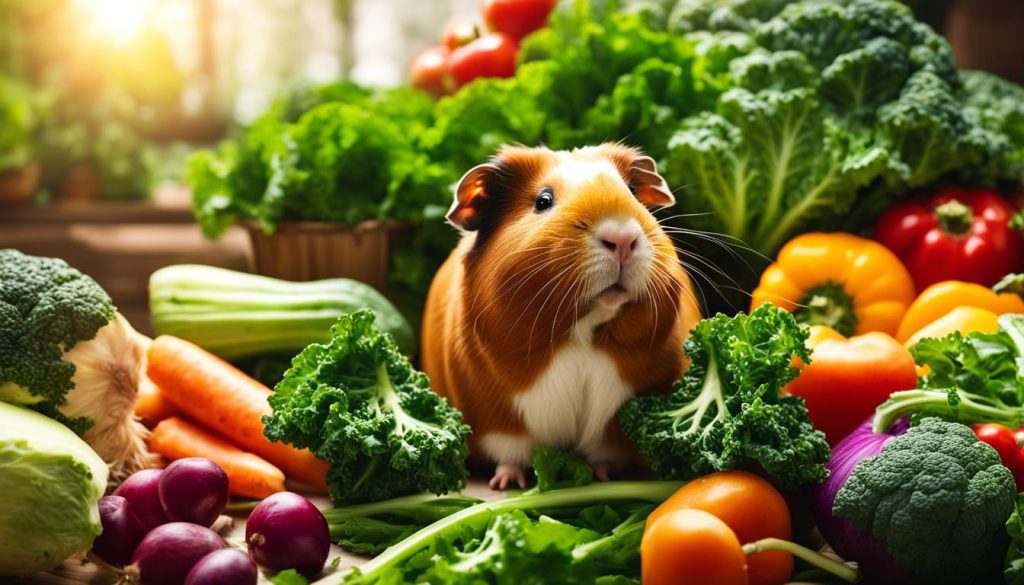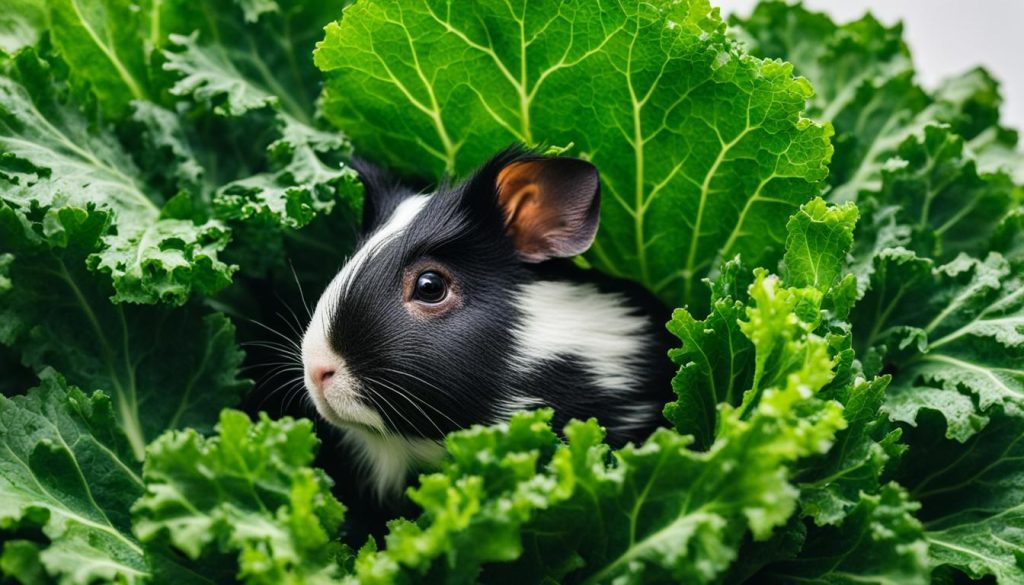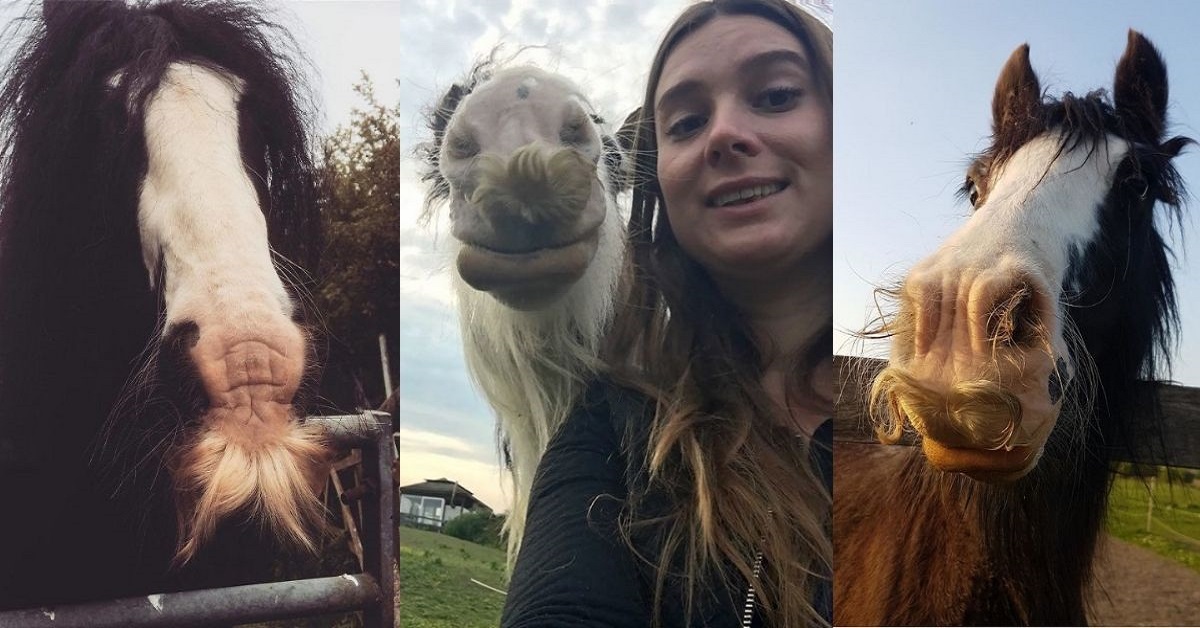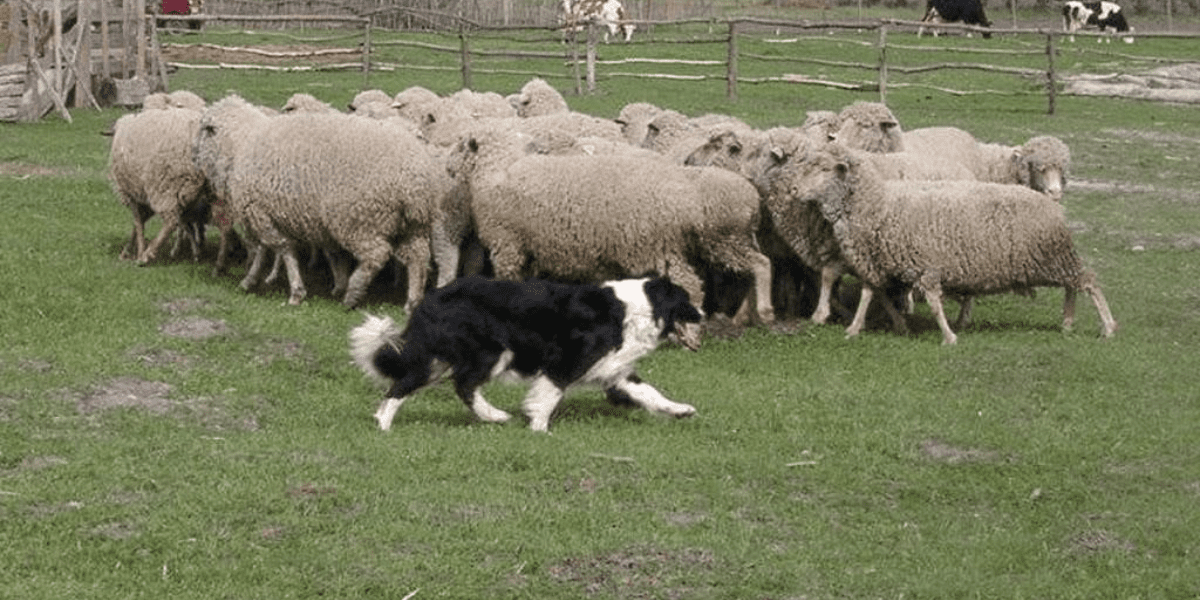If you’re a guinea pig owner, you may be wondering “Can guinea pigs eat kale?” Well, the answer is yes, guinea pigs can eat kale! However, it’s important to understand how to incorporate kale into their diet safely and in moderation.
Kale is packed with essential nutrients that can benefit guinea pigs, including vitamin A, vitamin C, and calcium. These nutrients contribute to their overall health and well-being. Vitamin A supports organ health and eyesight, while vitamin C plays a crucial role in boosting their immune system to prevent scurvy. Calcium is important for maintaining strong bones and teeth.
Despite its nutritional benefits, kale should not be given in excess. The high calcium content in kale can lead to bladder stones if consumed excessively. Therefore, it’s essential to provide kale as part of a varied and balanced diet, alongside other vegetables, and monitor their intake to prevent any negative health effects.
Can Guinea Pigs Eat Kale? Yes, they surely can!
- Kale is safe for guinea pigs to eat, but it should be given in moderation.
- Kale is rich in essential vitamins and nutrients, such as vitamin A, vitamin C, and calcium.
- Ensure kale is part of a balanced diet that includes other vegetables.
- Monitor your guinea pig’s kale intake to prevent excessive calcium consumption and bladder stones.
- Wash kale thoroughly to remove any pesticides that may be harmful to guinea pigs.
Nutritional Benefits of Kale for Guinea Pigs
Kale is a superfood for guinea pigs as it is rich in essential vitamins and nutrients. It contains vitamin A, which supports organ health and eyesight in guinea pigs. Kale is also a good source of vitamin C, which is crucial for their immune system and helps prevent scurvy. Additionally, kale is high in calcium, which contributes to bone and teeth health. However, it’s important to balance the intake of kale to avoid excessive calcium intake, which can lead to bladder stones.
To provide your guinea pigs with the benefits of kale, you can incorporate it into their diet a few times a week. Remember to always monitor their intake and avoid overfeeding kale. A leaf or two of average-sized kale fronds, given two to three times a week, is sufficient to ensure they receive the nutritional advantages without any negative side effects. Combine kale with other vegetables to provide a varied and balanced diet for your furry friends.

Guidelines for Feeding Kale to Guinea Pigs
When incorporating kale into a guinea pig’s diet, it is essential to follow certain guidelines to ensure their health and well-being. Feeding kale to guinea pigs should be done in moderation to prevent overconsumption and potential health issues. It is recommended to provide a leaf or two of average-sized fronds, approximately two to three times a week, as a part of their vegetable intake.
By offering kale in controlled amounts, guinea pigs can enjoy the nutritional benefits without any adverse effects. To determine the correct amount of kale to feed, it is vital to monitor their waste output. This helps gauge whether their current kale intake is suitable or if adjustments are needed. By observing their waste, you can ensure that they are properly digesting and utilizing the nutrients from the kale.
Another important consideration when feeding kale to guinea pigs is to wash it thoroughly before serving. This ensures that any potential pesticide residue is removed, promoting the safety and well-being of your furry friends. Washing the kale under running water and gently drying it before offering it to your guinea pigs is crucial in maintaining their overall health.
Incorporating kale into a guinea pig’s diet, following these guidelines, ensures that they receive the nutritional benefits of this leafy green while minimizing potential risks. Remember to monitor their kale intake, observe their waste output, and practice proper food hygiene in serving them fresh vegetables.
Potential Risks and Considerations
While kale is generally safe for guinea pigs, there are some important considerations to keep in mind. It’s essential to maintain a balanced diet for your guinea pig and not rely solely on kale as the primary source of nutrition. Although kale is packed with beneficial nutrients, such as vitamin A, vitamin C, and calcium, it also contains a high amount of calcium that can lead to bladder stones if consumed excessively.
Moreover, kale contains various nutrients, like potassium and calcium, that can work against each other. Providing a diverse and well-rounded diet is crucial to ensure your guinea pig’s overall health and well-being. Incorporating other vegetables into their diet along with kale can help create a nutrient-rich meal plan.
To guarantee the safety of your furry friend, it’s important to wash the kale thoroughly before feeding it to them. Removing any potential pesticides is essential to maintain their health and avoid any harmful effects.
Remember, always consult with your veterinarian for specific dietary advice and to address any concerns you may have regarding your guinea pig’s diet. Keeping these considerations in mind will help ensure that your guinea pig remains happy and healthy.

Other Vegetables for Guinea Pigs
While kale is a nutritious vegetable for guinea pigs, it’s important to provide them with a variety of vegetables in their diet. Offering a diverse range of vegetables ensures that guinea pigs receive a balanced and nutritious diet.
Some other suitable vegetables for guinea pigs include:
- Romaine lettuce
- Red and green leaf lettuces
- Mustard or turnip greens
- Cabbage
- Cilantro
- Parsley
In addition to these leafy greens, other vegetables such as carrots, zucchini, tomatoes, and sweet potatoes can be added to their diet as occasional treats.
Remember to always introduce new foods gradually and observe how your guinea pigs react. If you notice any digestive issues or other adverse reactions, consult a veterinarian.
Conclusion
Guinea pigs can safely eat kale as part of their diet, but it should be provided in moderation. Kale is a nutritious vegetable that offers essential vitamins and minerals, including vitamin A, vitamin C, and calcium. These nutrients contribute to the overall well-being of guinea pigs, supporting their organ health, immune system, and bone strength.
However, it’s important to be mindful of the amount of kale given to guinea pigs. Excessive consumption of kale can lead to an overabundance of calcium, which may result in the formation of bladder stones. Therefore, it’s crucial to monitor their intake and ensure a balanced diet that includes other vegetables alongside kale.
When feeding kale to guinea pigs, remember to thoroughly wash it to remove any potential pesticides that could be harmful to their health. Additionally, if you have specific dietary concerns or questions about incorporating kale into your guinea pig’s diet, it’s always best to consult with a veterinarian who can provide personalized advice and guidance.
Overall, kale can be a beneficial addition to a guinea pig’s diet, but it should be given in moderation and as part of a varied and nutritious meal plan. By providing the right amount of kale and a diverse range of vegetables, you can ensure your guinea pig enjoys a healthy and satisfying diet.
FAQ
Can guinea pigs eat kale?
Yes, guinea pigs can eat kale. However, it should be given in moderation.
What are the benefits of kale for guinea pigs?
Kale is packed with nutrients such as vitamin A, vitamin C, and calcium, which can benefit guinea pigs.
How should I incorporate kale into a guinea pig’s diet?
It’s important to provide kale in moderation, offering a leaf or two of average-sized fronds, about two to three times a week.
Are there any potential risks or considerations when feeding kale to guinea pigs?
Yes, kale contains a high amount of calcium, which can lead to bladder stones if consumed excessively. It’s also important to provide a balanced diet and not rely solely on kale as the primary source of nutrition for guinea pigs.
What other vegetables can guinea pigs eat?
Guinea pigs can also eat vegetables such as romaine lettuce, red and green leaf lettuces, mustard or turnip greens, cabbage, cilantro, parsley, carrots, zucchini, tomatoes, and sweet potatoes as occasional treats.






